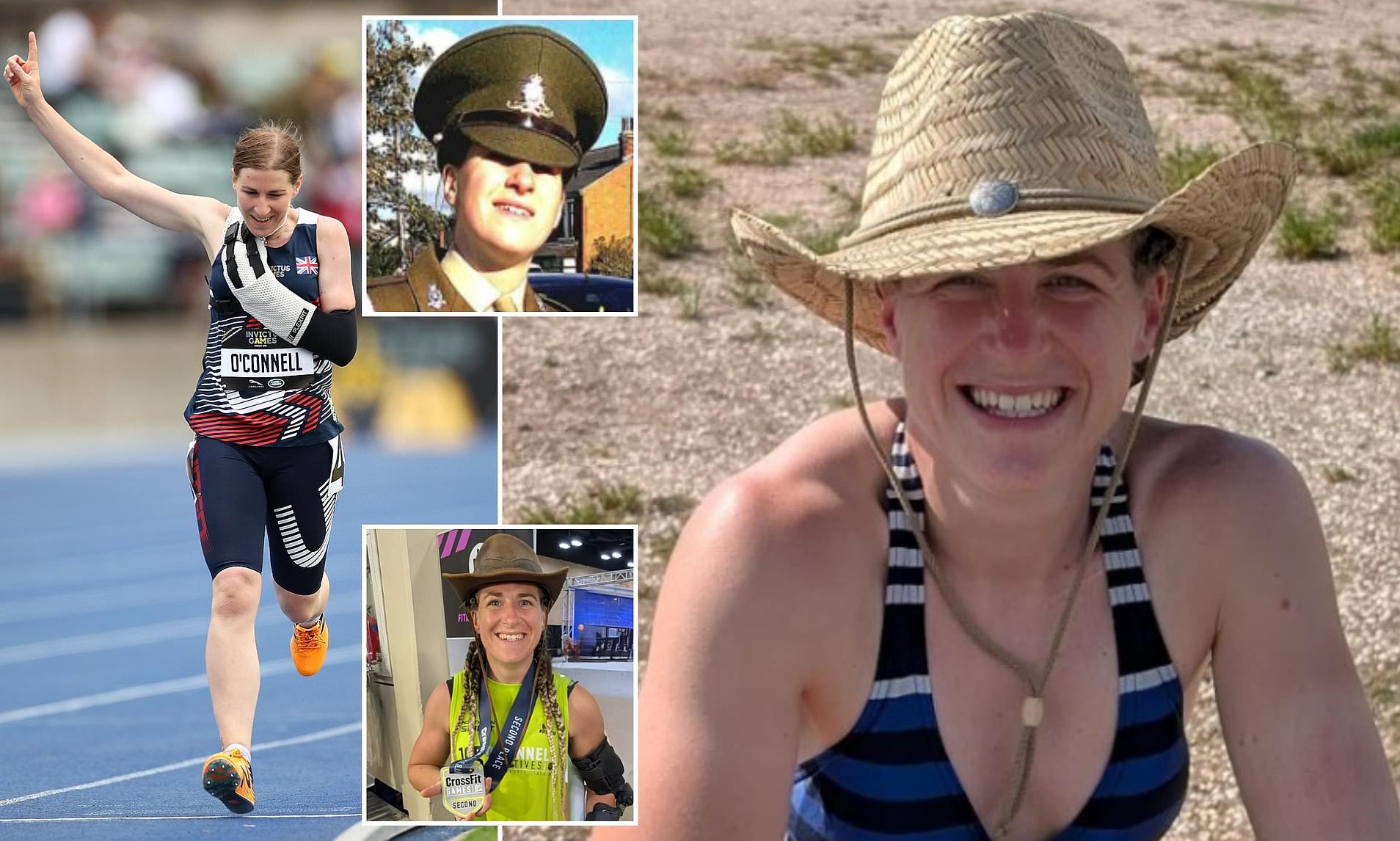A Former Soldier Turned Para Athlete Faces Allegations of Dishonesty in a £1.74 Million Compensation Claim
A former soldier who transitioned into a gold medal-winning para athlete after a military accident is now facing serious allegations of dishonesty. Debbie O’Connell, 37, served as a gunner in the Royal Horse Artillery and claims her arm was left severely damaged after she fell from an army horse in 2015. However, the Ministry of Defence (MoD) has accused her of exaggerating her symptoms to support a £1.74 million compensation claim against the government.
O’Connell suffered a shattered left collarbone during the incident, which she says led to chronic pain in her left arm and shoulder. She was discharged from the forces two years later but went on to achieve success in para athletics, winning gold medals at the Invictus Games in 2018 and competing at European and world levels in sprinting and CrossFit.
Her £2.4 million compensation claim, later reduced to £1.74 million, centers on the argument that the horse she was riding had a history of bucking and throwing riders. However, the MoD disputes this, arguing that O’Connell is not as disabled as she claims. The department has presented secret video footage showing her performing activities such as leading a difficult horse, walking a dog, and lifting heavy objects—actions that contradict her earlier medical reports.
Surveillance Evidence Contradicts Medical Claims
The MoD’s barrister, Niazi Fetto KC, presented surveillance footage that allegedly shows O’Connell using her left arm and shoulder in ways inconsistent with her previous statements. He argued that her participation in the T46 para-athletics category, which is reserved for athletes with limb impairments comparable to those with a unilateral above-elbow amputation, was based on dishonesty.
Fetto claimed that O’Connell knew her condition did not meet the T46 criteria but still pursued a para-athletics career to bolster her damages claim. He highlighted discrepancies between her medical accounts and the surveillance footage, including her ability to carry out daily tasks like walking a dog and handling heavy items.
O’Connell, however, denied any dishonesty. She insisted that her claims are genuine and that she fits within the T46 classification. She explained that she described her condition accurately when asked and that the classification aligns with other athletes she competes against. She also emphasized that as a soldier, she was trained to push through pain and that her pursuit of athletics is a way to make the most of her life despite her injury.
The Incident That Changed Her Life
The accident occurred during a training exercise with two colleagues. O’Connell’s horse, Electra Jazz, bucked and threw her to the ground, resulting in a severe fracture to her left collarbone. Although the injury was surgically repaired, she claims it led to disabling pain in her left shoulder and arm.
She described para sports as a central part of her life after the accident, even admitting that she “lived for it.” She competed in the 2018 Invictus Games, winning two gold and two silver medals, and continued to compete in para athletics and CrossFit.
However, the MoD argues that her injuries were not as severe as she claims. It pointed to the surveillance footage, which showed her engaging in activities that contradicted her earlier statements. For instance, she had told the BBC in 2018 that her arm “doesn’t work” and had represented near-total restriction of movement to an orthopaedic expert. Yet, the footage showed her carrying out tasks that required significant use of her left arm and shoulder.
Legal Arguments and Counterclaims
The MoD also contested O’Connell’s claim that the horse was at fault for the accident. It argued that Jazz had no known tendency to buck violently and that the bucking incident was a result of a loss of balance in the saddle. The department further disputed her claim about receiving ill-fitting boots, stating that the footwear was “reasonably safe and suitable.”
O’Connell’s legal team defended her, arguing that her participation in para athletics was not cheating but rather a testament to her resilience. They highlighted her ongoing medical treatments, including surgery and nerve blocks, as evidence of her genuine efforts to recover.
They also emphasized that her condition, initially diagnosed as chronic regional pain syndrome, is now considered neuropathic pain by experts. They argued that the surveillance footage should not be viewed in isolation, as it only captures a snapshot of her condition over nearly a decade.
The Trial Continues
The case remains ongoing, with both sides presenting compelling arguments. While the MoD accuses O’Connell of dishonesty, her legal team insists that she is a determined individual who has overcome significant challenges. The outcome of the trial could have far-reaching implications, not only for O’Connell but also for the broader discussion around disability claims and para-athletic classifications.







